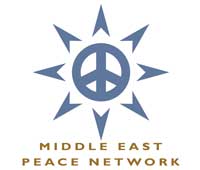Jewish-Muslim Reconciliation Initiative (JMRI)
A Context for Engaging Religion in Conflict Resolution
For some time, world attention has been focused on the unfolding apocalyptic-like battle between the Muslim world and the West. But nowadays, when a huge political storm sweeps across the Middle East, awakening Islamists as a force of change in the region and bringing the international conversation of the “clash of civilization” to the forefront, it is time to introduce an alternative context for the future: one that can be called “interaction of civilizations” instead. This alternative context can generate new conversations about an inter-religious dialogue and new ways to create a community of religions; one that can help the children of ’Avrahām of the Torah and of ’Ibrāhīm of the Qur’ān radically transform their underlying assumptions about and behaviors towards each other.
The JMRI is intended to accomplish the ambitious goal of reconciling the terribly bitter and unholy tensions between Islam and Judaism. This reconciliation is not only possible, it is critical; it would forward the cause of world peace, in general, and in particular help defuse the Arab-Israeli conflict, an age-old hostility trigger in the Middle East.
At the basis of the JMRI is the recognition of the centrality of the Israeli-Palestinian conflict within the overall context of Jewish-Muslim relations. Most Muslim leaders still argue that as long as this conflict is not resolved, resolution of the Jewish-Muslim rift is impossible. We at the Middle East Peace Network (MEPN) disagree. If anything, an historical rapprochement between the two religions can only help Israelis and Palestinians find peace together. The passions of religious antagonism between Islam and Judaism only aggravate the Middle East conflict. Nothing is more dangerous than turning this conflict into a war of beliefs and exporting it outside the boundaries of that region.
Scholars, analysts and policymakers have continuously reexamined the resurgence of religion on the world stage and its growing role in human affairs. At the basis of the JMRI is the rejection of the argument that religion is a source of conflicts and instead emphasizes the role of religion as a resource for resolving them. Religion can, best of all, serve peace and speak the language of conflict resolution and reconciliation. We have all seen how religious leaders exhibited remarkable capacities to serve others. It is therefore essential to treat religion as relevant to foreign policy and include religious actors in the diplomatic efforts in conflict regions. Religious leaders may be especially more effective in offering faith-driven solutions in conflict situations, such as the one between Israel and its Arab neighbors. This initiative is particularly important because Middle East governments have proven to be ill-quipped to handle religious issues and relate to religious actors.
The JMRI is a vehicle of faith diplomacy. Its purpose is to build bridges of understanding and reconciliation between the Jewish and Muslim worlds through human interaction, dialogue, education, and facilitation of peacemaking projects. It intends to inform and educate everyone that Islam and Judaism are sister religions closely related to one another with roots intertwined in the land, in the language, and in the memories of shared history. Its ultimate goal is to play a pivotal role in harnessing religion as a force of peace, and promote a culture of peace and a climate of healing in conflict regions, including Israel/Palestine where passions of religious antagonism are most striking.
The JMRI is the result of Rabbi Dr. Shai Har-El’s many years of personal thinking, speaking, writing, dialoguing, and engaging in the use of religion in the service of peace. It is a translation-into-action of his new book, Where Islam and Judaism Join Together: A Perspective on Reconciliation (New York: Palgrave McMillan, 2014)—his own personal journey into the heart of Islam in search of a common ground and possible Jewish-Muslim reconciliation. You are invited to read about his book in an exclusive interview with him.
To accomplish that goal, the JMRI will target the worlds of academia, education, religious communities, the general public, and government agencies, focusing on three faith-based tracks:
- Peace Education (“Shalom/Salaam”) – Producing resources, educational materials, workshops, seminars, public presentations, colloquia, and conferences;
- Interfaith Dialogue (“Faith to Faith”) – Facilitating interfaith dialogue groups all around, particularly where Jewish and Muslim communities reside together; and
- Religious Peacemaking (“Common Ground”) – Generating peacemaking projects and summits, with a special focus on the resolution of the Middle East conflict.
Given the JMRI’s intent to explore and utilize the entire spectrum of cultural, academic, theological, and political interactions between Jews and Muslims, a variety of professionals will be enrolled into the programs and activities. They will include spiritual leaders, community leaders, educators, scholars, academics, students, civic leaders, opinion makers, and members of the media—all sharing the same vision of transcending the seemingly unbridgeable chasm that separates Islam and Judaism and transforming the historical confrontation into harmony and cooperation.



